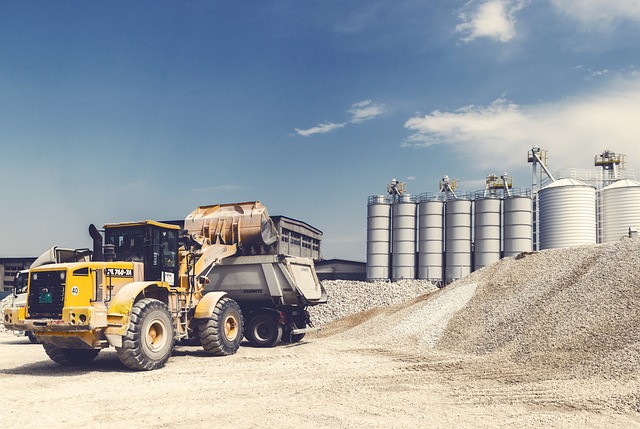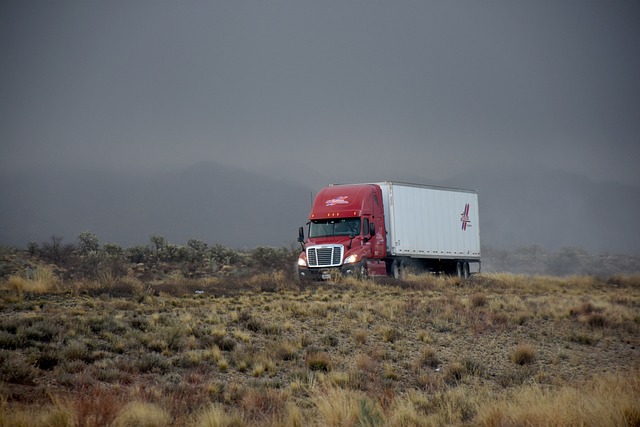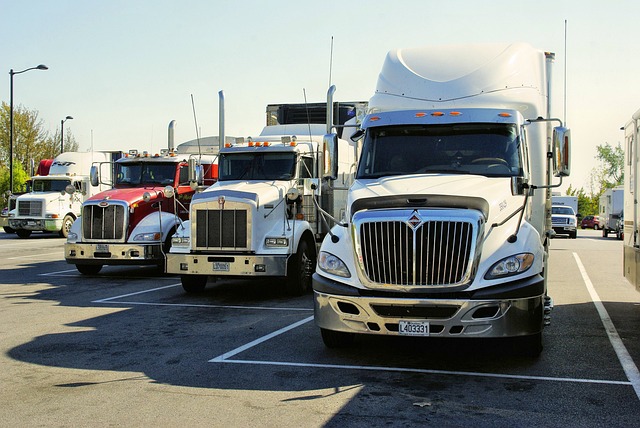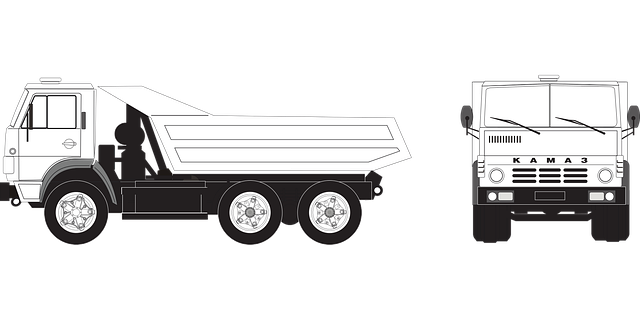Heavy-duty trucks pose unique risks on the road due to their size and diverse operations, making heavy-duty truck insurance crucial for risk management. This includes comprehensive collision coverage to protect against physical damage and cargo loss, as well as liability insurance to safeguard against claims from property damage or personal injuries. Customizing insurance policies based on specific business needs, such as vehicle types and routes, ensures adequate protection for trucking fleets, addressing potential financial liabilities and perils unique to heavy-duty trucking.
In the realm of commercial transportation, heavy-duty trucks play a vital role in keeping our economies moving. However, their operation comes with unique risks, necessitating specialized insurance coverage. This article explores the crucial aspects of liability and collision coverage for heavy-duty trucks, providing insights into understanding your needs, key components, benefits of collision protection, and customizing policies for peace of mind. Delve into these essential topics to navigate the complex landscape of heavy-duty truck insurance effectively.
- Understanding Heavy-Duty Truck Insurance Needs
- Key Components of Liability Coverage
- Collision Coverage: Protecting Against Financial Loss
- Customizing Your Policy for Peace of Mind
Understanding Heavy-Duty Truck Insurance Needs

Heavy-duty trucks, given their size, power, and purpose, come with unique risks on the road. Understanding these risks is paramount when considering heavy-duty truck insurance. These vehicles often transport valuable cargo over long distances, navigate challenging terrains, and operate in diverse weather conditions, all of which can contribute to increased liability. Collision coverage for such trucks is not just a recommendation but an essential component of risk management.
Insuring against potential liabilities involves recognizing the specific needs of these vehicles. Heavy-duty truck insurance should encompass comprehensive protection against physical damage, including collision with other vehicles or fixed objects, as well as coverage for cargo loss or damage during transit. Additionally, liability insurance is crucial to safeguard against claims arising from accidents causing property damage or personal injuries.
Key Components of Liability Coverage

Liability coverage for heavy-duty trucks is a critical aspect of risk management for any fleet operator. When it comes to key components, several elements stand out in the complex landscape of truck insurance. Firstly, heavy-duty truck insurance should include comprehensive general liability (CGL) coverage, which protects against claims of bodily injury or property damage arising from operations, including accidents involving the truck and its cargo. This coverage is essential as it shields operators from significant financial burdens that could result from legal liabilities.
Additionally, specific endorsements for heavy-duty vehicles are crucial. These may include coverage for underinsurance/uninsured motorist protection, which fills gaps in coverage when the at-fault driver has insufficient insurance or none at all. Other vital components involve cargo coverage to protect against loss or damage during transit and medical payments for injuries sustained by occupants of the truck or others involved in an accident. Such comprehensive liability coverage ensures that fleet operators are well-protected in various scenarios, from minor fender benders to significant collisions.
Collision Coverage: Protecting Against Financial Loss

Collision coverage is a vital component of heavy-duty truck insurance, designed to protect owners and operators from significant financial losses in the event of accidents. This type of coverage can help offset the high repair costs associated with large vehicles, which often suffer extensive damage in collisions due to their size and weight. When a heavy-duty truck is involved in an accident, the repairs can be costly and lengthy, potentially impacting the bottom line for businesses relying on these vehicles for daily operations.
By including collision coverage in their policy, owners gain peace of mind knowing that their investment is safeguarded. This protection covers not only the cost of repairing or replacing the truck but also any legal responsibilities arising from the incident. It’s especially crucial for heavy-duty trucks navigating busy highways and urban centers where the risk of collisions is higher, ensuring that businesses can continue their operations without being burdened by unexpected financial setbacks.
Customizing Your Policy for Peace of Mind

When it comes to heavy-duty truck insurance, customizing your policy is a smart move for ensuring peace of mind on the road. Every trucking operation has unique needs, and one-size-fits-all policies may not adequately cover specific risks. By working with an insurance provider that offers flexible customization options, you can tailor your coverage to match the type and size of vehicles in your fleet, as well as the routes they travel. This could include adding specialized coverage for cargo protection, liability enhancements, or even roadside assistance services.
Customizing your policy allows you to proactively manage potential risks and financial liabilities associated with operating heavy-duty trucks. Whether it’s mitigating the costs of a collision or ensuring comprehensive protection against various perils, these tailored policies offer a sense of security for trucking businesses. Remember, in the competitive world of heavy-duty truck insurance, having a customized policy can make all the difference in managing your fleet’s financial health and operational continuity.
Heavy-duty truck insurance is not just a legal requirement; it’s a safety net that safeguards against unforeseen events. By understanding your needs, selecting the right liability and collision coverage, and customizing your policy, you can navigate the road with confidence, knowing your investment and business are protected. Remember, peace of mind while on the road is invaluable, making comprehensive insurance a wise decision for any heavy-duty truck owner or operator.
